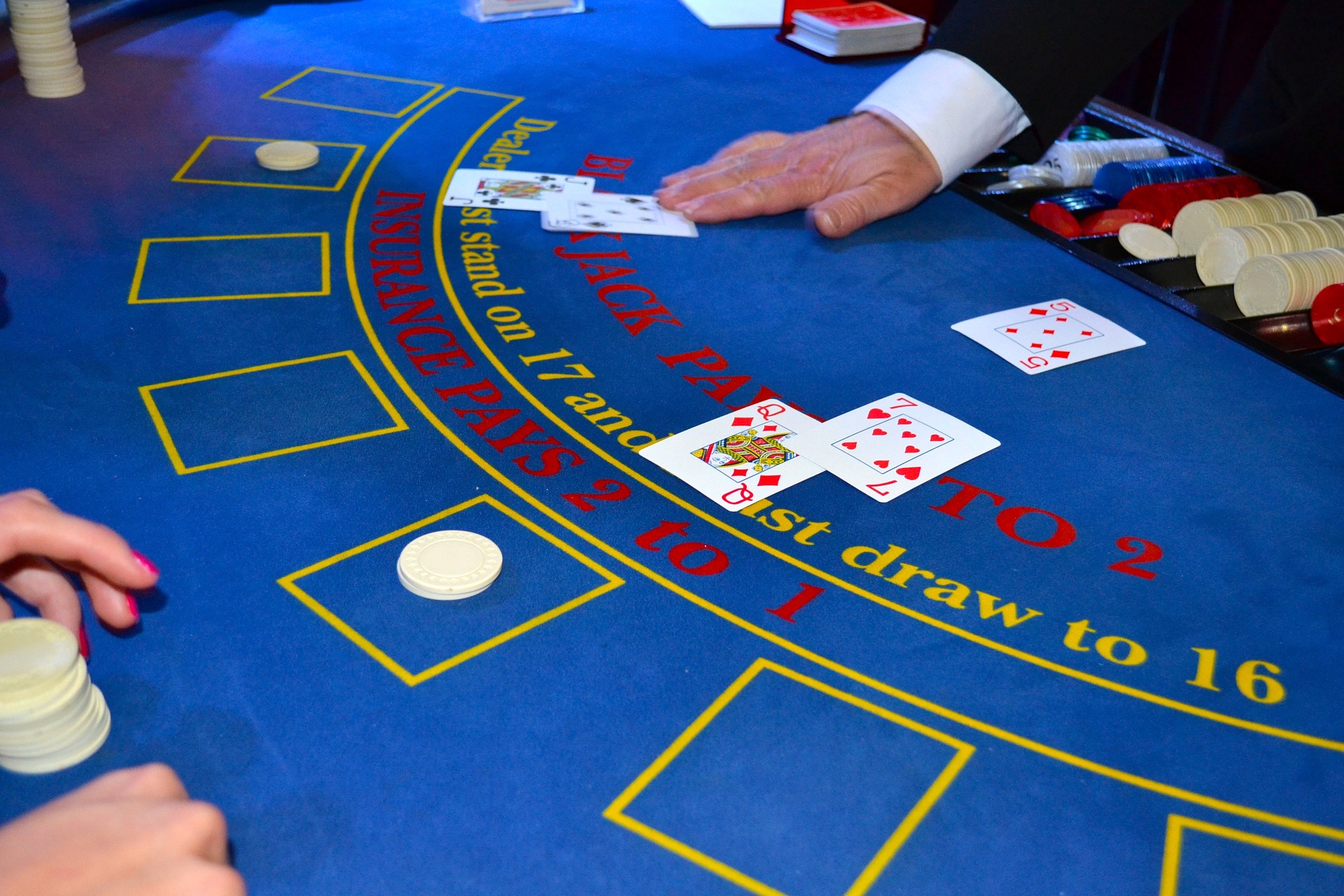Imagine you walk into a casino with your entire retirement portfolio in tow – whether that’s a few thousand or a few million. You walk up to the blackjack table determined to beat the house and boost your retirement savings.
Which of these two strategies would you follow?
- Bet your entire life savings on one hand.
- Divide your money over many hands, perhaps several hundred.
I imagine many would select option 2. It feels less risky. With option 1, you might give up your entire life savings in a matter of minutes!
Games of Chance
But is this the logical choice? If you select the first option, you have nearly a 50% chance of walking out with a lot more money than you had when you walked in. On the other hand, the law of large numbers tells us that if you play many hands, you are almost certain to walk out of the casino with less money than when you walked in.
A common example of how this works is a coin toss. If you toss a coin 10 times, you actually have a decent chance of landing on the same side 7 or 8 times, even though you’d expect 5 heads and 5 tails. But toss that coin 1000 times and you are likely to land very close to 50% heads and 50% tails.
The law of large numbers says that actual outcomes will approach the expected outcome as the sample grows. So, if your odds of success in Blackjack are 49% and you play once, you have a 49% chance of leaving with more money than you came with. If you play a few hands, you might still come out ahead. If you play 1000 hands, you are very likely to leave the casino with less than you came with.
Go Big or Go Home
I probably don’t need to convince most of you that betting your life savings on a game where the house has an advantage is unwise. But this decision process teaches us a valuable lesson:
In games where you have a low probability of success, your best chance at winning is to go big or go home. If you diversify your bets, you will almost certainly lose in the long run.
Of course, you may be thinking “But at least if a spread out my bets I’ll only lose a little.” This is true, if you spread $100,000 out over 1000 hands in a game where you expect to win 49% of the time, you would expect to leave the table with $98,000. Not a huge risk.
But the point is, if you’re going to play that way, then why even play the game? I can think of quite a few better uses of $2,000.
Investment Games
How does this apply to investing? I have written repeatedly about two games that some investors like to play: market timing and stock picking. On average, these are losing games for 2 reasons:
- Management fees paid to professional analysts to decide what and when to buy and sell
- Transactions costs of the actual buying and selling
Trying to outguess the market is expensive. As such, the odds of success in the games of market timing and stock picking are less than 50/50. (This WSJ article cites data that shows that 82% of U.S. mutual funds trailed benchmarks over 15 years.)
Like Blackjack, if you diversify your market timing or stock picking bets, either by hiring many managers, employing several market timing strategies or diversifying your stock picks, you have a slim chance of beating the market over time.
Your diversified portfolio will end up looking a lot like the market, only with high fees and expenses.
If you really want to have a shot at beating the market, your best shot is to go big or go home. Hope to find the next hot tech company and bet the farm on it. Find a manager with an aggressive market timing strategy that looks promising and invests everything you’ve got.
If you make a good bet, you might retire with 10’s of millions and be able to buy the yacht and summer home of your dreams.
If you make a poor bet, you might have to keep working into your 80’s.
But at least you have a chance.
A More Rational Approach
Of course, I would never recommend such a strategy. Leaving your life goals up to chance just doesn’t seem prudent.
But then we are left with only one conclusion:
If you can’t stomach the boom or bust, highly concentrated approach to investing, you shouldn’t employ stock picking or market timing in your portfolio.
On average, they are losing propositions. In a diversified portfolio, they are very unlikely to add value in the long-run due to high fees and expenses.
If you believe in diversifying your risks, the rational approach is to minimize fees and expenses and turn your focus to more valuable questions like:
- How much risk should I be taking?
- How can a reduce my taxes, both now and in the future?
- How will I maintain discipline when markets become volatile?
- How much do I need to be saving to retire when and how I want?
- How much can I afford to spend in retirement without risking running out of money?
In other words, put the cards down, walk out of the casino, and do something productive with your money, rather than playing a game the house is bound to win.
To learn more, you can schedule a complimentary, no-obligation introduction. Just click here.

